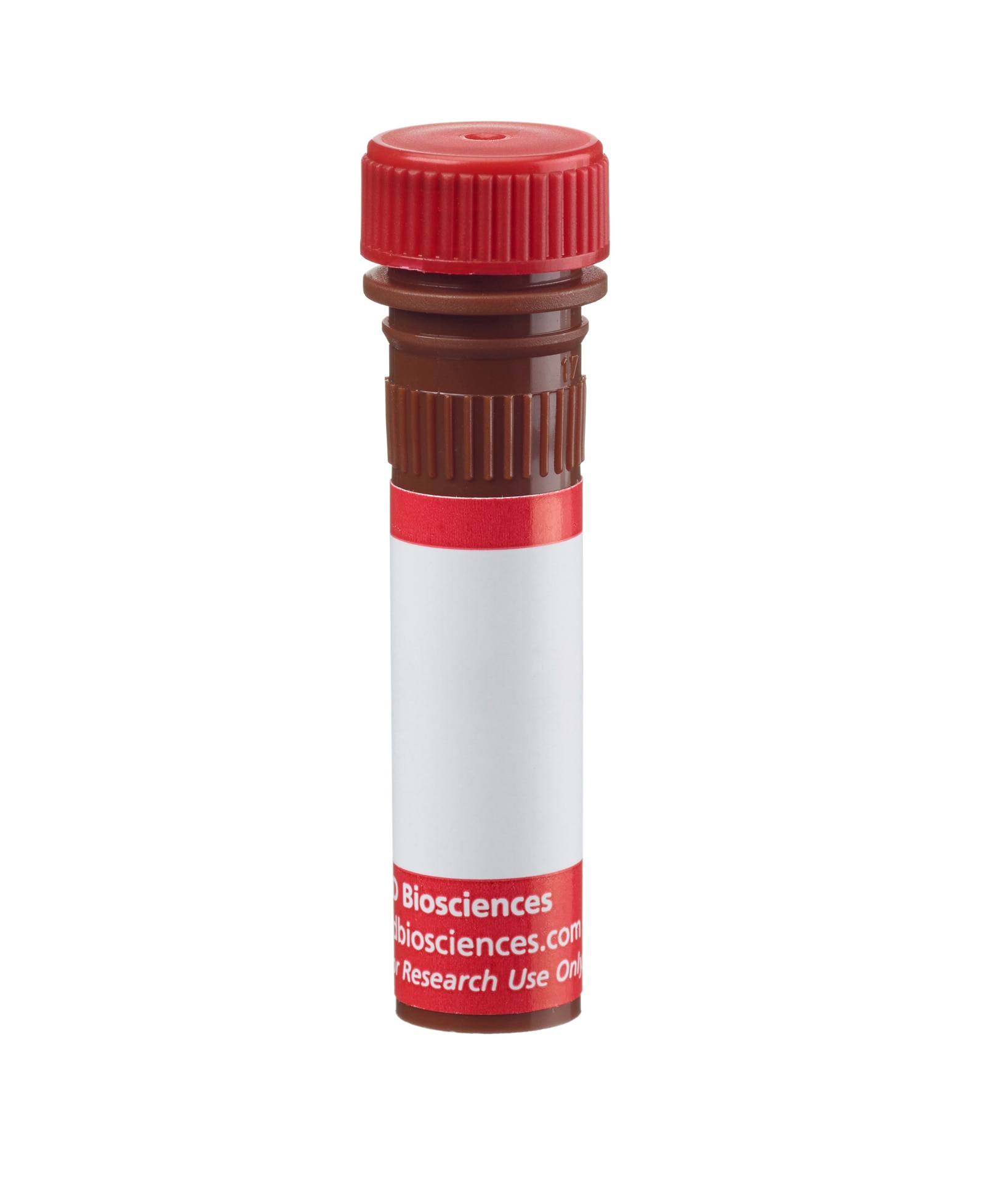Old Browser
This page has been recently translated and is available in French now.
Looks like you're visiting us from {countryName}.
Would you like to stay on the current country site or be switched to your country?




Flow cytometric analysis of CD196 on mouse splenocytes. BALB/c splenocytes were stained with Alexa Fluor® 647 Rat Anti-Mouse CD196 and FITC Rat Anti-Mouse CD45R/B220 (Cat. No. 553087 or 553088). For data analysis, lymphocytes were selected by their scatter profile, and the positions of the quadrant markers were determined by staining with Alexa Fluor® 647 Rat IgG2a, κ Isotype Control (Cat. No. 557690) and FITC Rat IgG2a, κ Isotype Control (Cat. No. 553929). Flow cytometry was performed on a BD FACSCalibur™ flow cytometry system.


BD Pharmingen™ Alexa Fluor® 647 Rat Anti-Mouse CD196

Regulatory Status Legend
Any use of products other than the permitted use without the express written authorization of Becton, Dickinson and Company is strictly prohibited.
Preparation And Storage
Product Notices
- Since applications vary, each investigator should titrate the reagent to obtain optimal results.
- Please refer to www.bdbiosciences.com/us/s/resources for technical protocols.
- For fluorochrome spectra and suitable instrument settings, please refer to our Multicolor Flow Cytometry web page at www.bdbiosciences.com/colors.
- The Alexa Fluor®, Pacific Blue™, and Cascade Blue® dye antibody conjugates in this product are sold under license from Molecular Probes, Inc. for research use only, excluding use in combination with microarrays, or as analyte specific reagents. The Alexa Fluor® dyes (except for Alexa Fluor® 430), Pacific Blue™ dye, and Cascade Blue® dye are covered by pending and issued patents.
- Alexa Fluor® 647 fluorochrome emission is collected at the same instrument settings as for allophycocyanin (APC).
- Alexa Fluor® is a registered trademark of Molecular Probes, Inc., Eugene, OR.
- Caution: Sodium azide yields highly toxic hydrazoic acid under acidic conditions. Dilute azide compounds in running water before discarding to avoid accumulation of potentially explosive deposits in plumbing.
- An isotype control should be used at the same concentration as the antibody of interest.
Companion Products



The 140706 monoclonal antibody specifically binds to mouse CD196 (CCR6), a CC chemokine receptor that is expressed on B lymphocytes and subsets of T and dendritic cells. The known ligand for CCR6 is CCL20/MIP-3α, and together they regulate the migration and recruitment of antigen-presenting and immunocompetent cells during inflammatory and immunological responses.
Development References (3)
-
Hirota K, Yoshitomi H, Hashimoto M, et al. Preferential recruitment of CCR6-expressing Th17 cells to inflamed joints via CCL20 in rheumatoid arthritis and its animal model. J Exp Med. 2007; 204(12):2803-2812. (Clone-specific: Flow cytometry). View Reference
-
Kucharzik T, Hudson JT 3rd, Waikel RL, Martin WD, Williams IR. CCR6 expression distinguishes mouse myeloid and lymphoid dendritic cell subsets: demonstration using a CCR6 EGFP knock-in mouse. Eur J Immunol. 2002; 32(1):104-112. (Biology). View Reference
-
Varona R, Villares R, Carramolino L, et al. CCR6-deficient mice have impaired leukocyte homeostasis and altered contact hypersensitivity and delayed-type hypersensitivity responses. J Clin Invest. 2001; 107(6):R37-R45. (Biology). View Reference
Please refer to Support Documents for Quality Certificates
Global - Refer to manufacturer's instructions for use and related User Manuals and Technical data sheets before using this products as described
Comparisons, where applicable, are made against older BD Technology, manual methods or are general performance claims. Comparisons are not made against non-BD technologies, unless otherwise noted.
For Research Use Only. Not for use in diagnostic or therapeutic procedures.
Report a Site Issue
This form is intended to help us improve our website experience. For other support, please visit our Contact Us page.